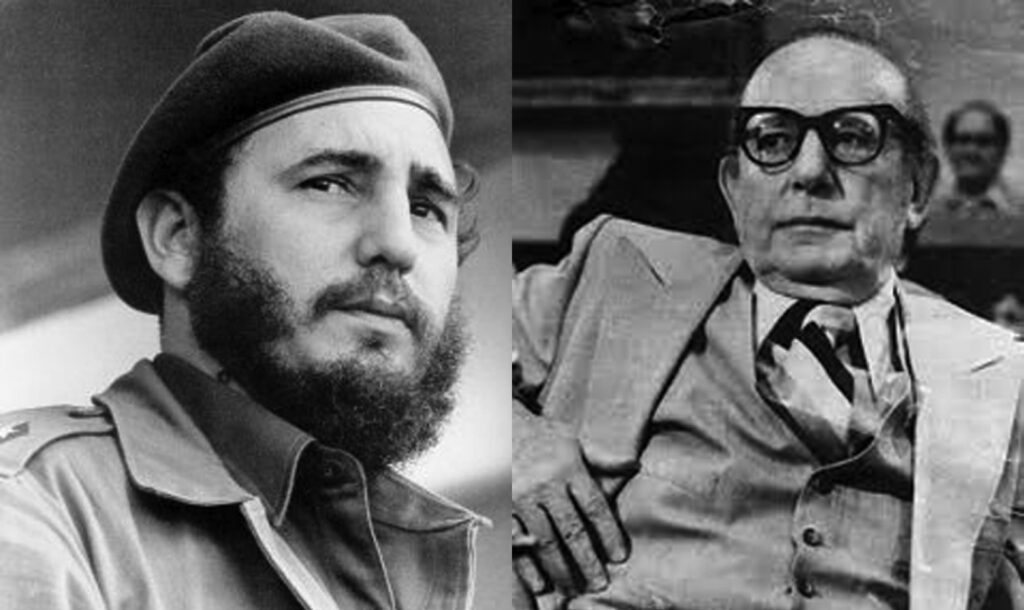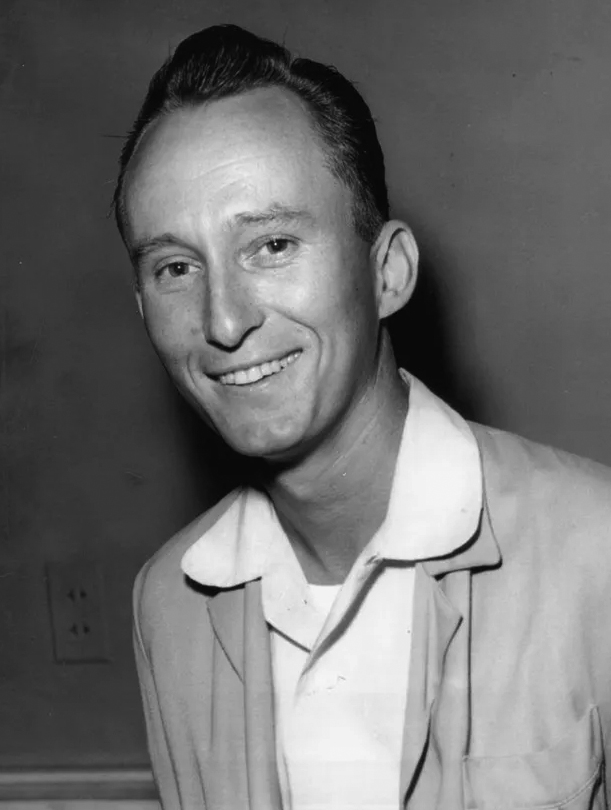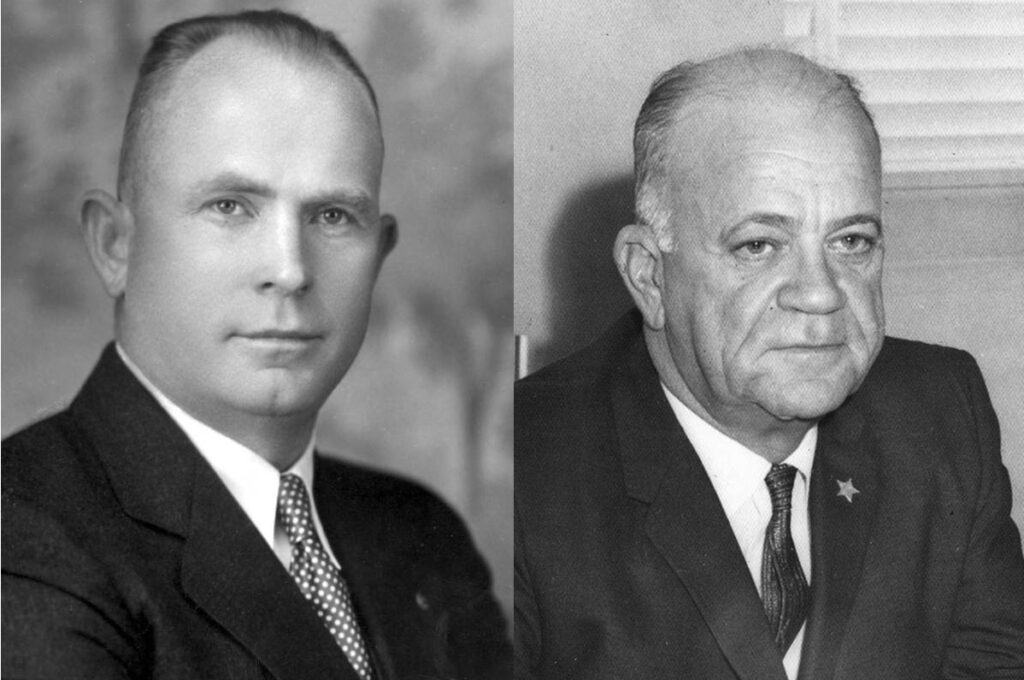SLEEPING WITH THE ENEMY
Did the Hillsborough County Sheriff’s Office Make a Deal With Fidel Castro for the Release of Santo Trafficante?

Captain Ellis Clifton kept a secret about the Hillsborough County Sheriff’s Office for over half a century. He didn’t tell the author, who based a book on his career battling organized crime in Tampa. He didn’t tell his partners in the Hillsborough County Vice Squad. He didn’t tell his family.
Then, in 2007, at the age of 80, outside his Florida vacation home, an oxygen tank at the ready, knowing he had just a few months of life left, he casually told me his secret on film.
“So we made a deal with Castro up in the hills,” he said, taking a brief pause to catch his breath. “If we helped run him guns, he would send us those guys.”
By “we,” he meant the Hillsborough County Sheriff’s Office. “Those guys” were Santo Trafficante, Jr and his crew, who ran their Tampa mafia crime syndicate from the comfort of legal casinos in Fulgencio Batista’s-led Cuba in the 1950s.
We’re not talking about a crazy conspiracy theorist making a controversial statement. This was Captain Ellis Clifton. In the 1950s, Clifton was head of the Hillsborough County Vice Squad, the department that was charged with bringing down the Tampa mafia and ending Tampa’s “Era of Blood,” in which 21 gang slayings occurred between 1922 and 1955. Clifton was known by Tampa’s Mafiosos as “The Bolita Buster” for his countless successful bolita (an illegal lottery) raids and “The Rabbit” for his ability to seemingly always pop up out of nowhere when a big-time game was taking place.

The Tampa mafia considered Clifton the most dangerous law enforcement officer in Tampa. His secret deal with Fidel Castro is a perfect example of why he was so feared–he used extraordinary measures to battle the Tampa mob.
I interviewed him for my documentary on the infamous Tampa gangster Charlie Wall. While on film, he mentioned the deal casually, as though this half-century-old secret was the equivalent of a secret family recipe. Nevertheless, he continued with his fascinating tales of investigating the Tampa mafia.
I asked if we could focus on his deal with Castro. He huffed, smiled slyly, and, in his smooth Florida Cracker drawl, said, “Some things should go with me to my grave.”
My first thought was: Could he have lied to me?
“No. Not at all,” wrote Ace Atkins in an email to me when asked if Clifton was the type of man who lied. Atkins is the author of White Shadow, a fictional crime drama based on the real-life 1955 murder of Charlie Wall. Clifton was the lead investigator on the murder case and was one of Atkin’s top sources while doing research for the book. As a result, the two became close friends.
“Ellis Clifton was a straight shooter,” stressed Atkins. “He was not the type of man to lie,” Atkins suggested; how Clifton got his start in law enforcement says everything you need to know about his honesty.
Before joining the Hillsborough County Sheriff’s Office, Clifton was a crime-beat reporter for the Tampa Tribune. On the evening of the Gasparilla Parade in 1953, one of his informants told him that a high-stakes illegal gambling game was taking place in a room in the Tampa Terrace Hotel in downtown Tampa. Clifton fearlessly went by to check it out and discovered that some of his bosses from the Tampa Tribune were already there. They weren’t investigating the illegal gambling for a story, though. They were gambling. Clifton’s wife was seven months pregnant, and he knew that calling the police would cost him his job and leave him and his wife in a financial bind. Despite the potential ramifications, Clifton felt he had to do the right thing. He left the makeshift gambling parlor and called the Sheriff’s Office, but someone had tipped off the gamblers when they arrived. When the officers arrived, there was no sign of any illegal activity. When Clifton went to work the next day, he was fired. However, that same day, Hillsborough County Sheriff Ed Blackburn called Clifton and offered him a job.
“Blackburn won the sheriff’s election by promising to clean up the illegal gambling,” explained Clifton.

The Hillsborough County Sheriff’s Office could have had a better reputation. Its previous Sheriff, Hugh Culbreath, was exposed as corrupt by the Senate Special Committee to Investigate Crime in Interstate Commerce, also known as the Kefauver Committee. The committee investigated organized crime nationwide, held public hearings in select cities, and concluded that Tampa was one of the most corrupt cities in America. Several individuals implicated Sheriff Culbreath for being in cahoots with Tampa’s crime syndicate.
“Human life in Tampa was almost as cheap as the sand of the beach,” wrote Estes Kefauver, the senator who led the nationwide investigation. “In nineteen years, there have been fourteen murders, six attempted assassinations in the Tampa underworld, and only one conviction. The moral of the Tampa story is this: if good citizens of a community shut their eyes to wholesale violation of a law, even if it’s a law prohibiting something that a lot of people happen to like law enforcement and honesty in public office will go to hell in a handcart.”
To clean up the Sheriff’s Office, Sheriff Blackburn needed honest men, and Clifton was tapped as one of those men. Despite having zero law enforcement experience, he was placed on the Vice Squad, one of the most important law enforcement departments, if not the most important; Blackburn saw him as a man who could not be bought off by organized crime.
